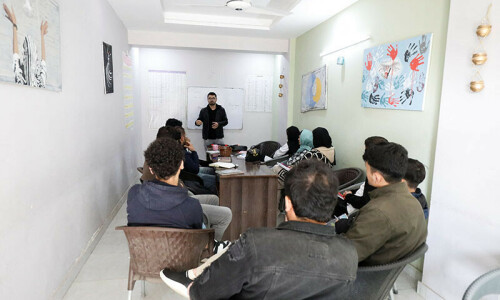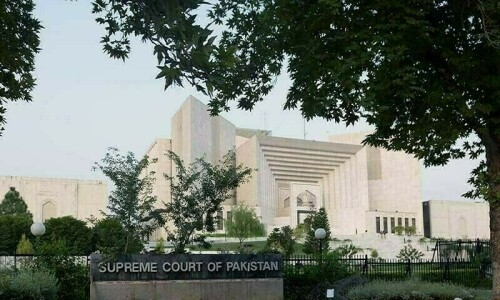
In a recent meeting, the Sindh chief minister confirmed the resolve of his government to support the speedy development of Marble City in Karachi. The venture shall be undertaken by Sindh Economic Zones Management Company (SEZMC) and private partners. The undertaking is believed to cause a substantial boost to granite and marble production, two very important products for the expanding construction and real estate sector.
The initiative will generate about 10,000 jobs and cause scaling up of various other connected sectors. Whereas the decision to launch any economic enterprise seems a positive move, several technical and business-related matters must be reviewed objectively to obtain an optimum premium on public spending.
Let us review the cumulative national scenario related to the country’s mining and production of marble. There is no denying the fact that Pakistan is endowed with vast deposits of marble of very fine quality. Geologists and mining experts believe that more than 160 million tonnes of such deposits exist in the country; 97 per cent of these reserves lie in Khyber Pakhtunkhwa while the remaining exists in different locations in Balochistan.
The territories of the erstwhile Federally Administered Tribal Areas have substantial deposits that were being mined as an organised enterprise. Like other economic activities, marble production and refining have been gravely affected in that region due to ongoing challenges with respect to security.
Sindh’s Marble City promises growth but must tackle mining, logistics, and power challenges for success
That said, the government of Khyber Pakhtunkhwa, with financial and technical assistance from various international agencies, embarked upon a programme to enhance marble production. From a strategic standpoint, the region shall lead in the marble trade due to its natural advantage with respect to raw materials, export links, and the favourable policies of certain foreign investors.
Similarly, in 2006, a marble city was inaugurated in Gadani in Balochistan with assistance from the Omani government. Spread over 600 acres, the venture took off at a slow pace. Several units were built, while more are under construction. This venture offers many benefits to potential investors and industrialists. A semi-autonomous entity is created to manage the estate. The government of Sindh must be aware of the competitive environment before moving ahead with its plans.
Marble is a bulky commodity with substantial weight and volume. It requires cheap and dependable transportation options to retain profitability in its production. Railroads and freight train services to the mining sites, manufacturing and processing locations constitute a prerequisite. Other technical considerations must also be carefully reviewed. The marble industry is entirely dependent upon a sound mining process and a stable supply chain that is affected by several factors.
The ongoing troubles in Balochistan have greatly impacted the supply of raw marble to the marble units. During the past several years, the supply of raw marble from the mines in Balochistan and Khyber Pakhtunkhwa has been severely affected due to poor law and order situation, disruptions and other logistic constraints.
While the quality of ore from many of these locations has been appropriate, directing circumstances are anything but satisfactory. Miners, truck operators and unit owners were all complaining about the precarious state of law and order in the area.
There are small and medium-scale units of marble processing scattered along Manghopir Road, Pak Colony, the SITE area and the environs.
These units, while largely catering to the local construction industry, were complaining about the power outages and load shedding. Needless to say, marble processing is a power-intensive production. Without a credible supply of cheap and dependable electricity, any new venture is likely to hit snags even before a proper takeoff.
The dilemma with consolidated single enterprise schemes is that they are often reduced to the mere exercise of industrial land supply. Some venture capitalists acquire land and do no more than erect boundary walls. Countless enterprise zones and industrial locations in Karachi and elsewhere depict this under-utilisation of strategic land reserves.
The government will do well by ensuring that the venture moves beyond the laying of the foundation stone. Marble exports have been highlighted as a hugely profitable sub-sector with expected volume to the tune of $1 billion in the next two to three years. At present, they are far below this figure to around $4m. From doing away with old-fashioned modes of mining to facilitating an uninterrupted supply of raw materials to units, an exhaustive list of prerequisites has to be efficiently satisfied.
The writer is an academic and researcher based in Karachi
Published in Dawn, The Business and Finance Weekly, December 16th, 2024
















































Dear visitor, the comments section is undergoing an overhaul and will return soon.